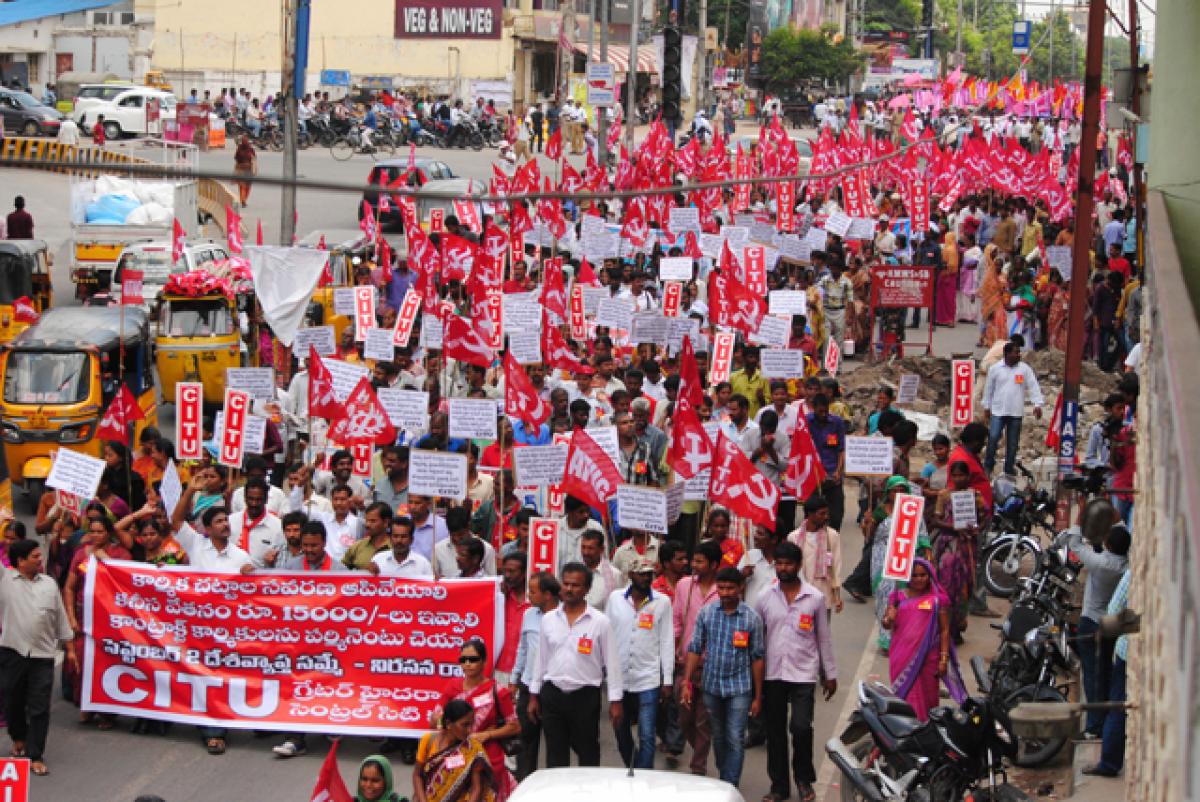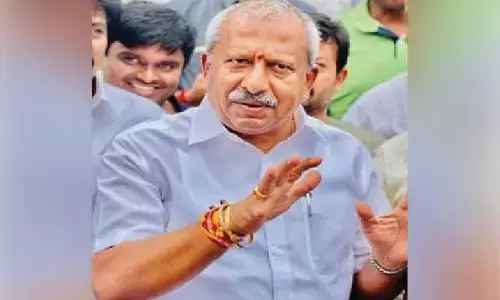Labour reforms for whose sake and at what cost

Labour reforms for whose sake and at what cost. In his second address from the historic Red Fort, Prime Minister Narendra Modi made a mention of proposed amendments in the labour laws.
Nobody from the working community is in favour of labour reforms being proposed by the Narendra Modi government. Only the corporate world is insisting upon them. They want the freedom of firing the workers and closing the units at will. They also want the inspection system to go and want curbs on trade unions
In his second address from the historic Red Fort, Prime Minister Narendra Modi made a mention of proposed amendments in the labour laws. He said 44 different labour laws would be simplified and classified into 4 codes. They deal with industrial relations, wages, social security and safety.

Modi opined that due to numerous laws, workers were unable to understand them. Now the stage seems all set for NDA government’s yet another Bill. But, it would be a grave mistake if you believe that these reforms are intended for the welfare of the working community.
More companies will get to retrench workers
The three key labour Acts – Trade Union Act, Industrial Disputes Act and The Industrial Employment Act – would be merged into a single Industrial Relations Law. Furthermore, a new labour law would come into force for micro, small and medium industrial units. The government says that with these changes, industrialists would employ more people at work. But this is untrue.
By virtue of these amendments, even big companies would be able to retrench workers at will. According to the present Act, factories which run with more than 100 employees can’t retrench the workers without the government’s approval. Now this limit would be increased to 300. Obviously, factory owners would be benefited by this change. The only benefit for the workers is that they would get 45 days wage as compensation instead of 15 days wage.
Workers’ rights curtailed more
Another amendment would prevent employees from going to courts within a time limit of 3 years, if there is an industrial dispute. In the present format, there is no such limit. Also, signatures of 30% workers are necessary for the formation of a Trade Union. The present law says 10% workers’ consent is enough.
The Contract Labour (Regulation and Abolition) Act would also be weakened with these amendments. Only 6 million out of 360 million contract workers are at present covered by this Act. According to the present Factories Act, employers must ensure secured workplace, drinking water facility, toilet, 8-hour workday, paid leaves, overtime etc. This is also going to be diluted now. Is this the essence of oft-recited ‘Shramayeva Jayate’!
Self-certification of adherence to rules
Proposed amendments have a provision of relieving micro, small and medium level factory owners from the ‘burden’ of inspection. It’s well-known that there would never be a sincere industrial inspection in India. Look at this example: In 2012, 3,171 inspectors were entrusted with the responsibility of inspecting 7.7 million production units.
One can’t imagine this to happen even in his dream! In fact, industrial inspection has already become mere a ritual rather a rule. In spite of tragedies like Bhopal gas leak, industrial security in India is a least-bothered aspect. Yet, the NDA government is now saying that the factory owners’ self-certification is enough.
If an industrialist submits a written affidavit saying he ensured all the safety measures, the government would say, ‘OK, fine then, go ahead!’ What a fine tuning! Almost all trade unions are opposing these labour amendments. The general strike on September 2 is just an exhibition. Interestingly, at one point, BMS, the trade union wing of BJP, also opposes these labour reforms.
Trade unions have put forth a charter of 12 demands before the government, which include controlling price rise, strengthening PDS, increasing employment as well as some worker-specific demands like Rs 15,000 minimum salary, abolition of contract system in regular works, equal wages for equal work, and so on. But the government seems to be in no mood to address these issues.
Only corporates firm on labour reforms
Nobody from the working community is in favour of these labour reforms. Only the corporate world is insisting upon them. They want the freedom of firing the workers and closing the units at will. They hate interventions of governments and trade unions. They have been pushing for corporate-friendly laws for a long time. New Delhi has also been reciprocating accordingly since UPA-II era.
Further, the ongoing ‘Make in India’ campaign may make the government mellower towards the industry and its interests. The corporates argue that if the labour laws are amended, more companies would come into being, and thus more people would get employed. Economic growth rate would shoot up. However, for this to happen, the workers should shut their mouths even if their employers fire them and close the firms abruptly.
They should give up trade unions and strikes all together. In whose interest are the reform proposals, anyway? For the sake of our nation’s economy? Then the question is what sort of economy is this, if it seeks to strip million of workers of their genuine rights? Is this the way of ‘respecting labour’ which our PM has also referred to in his Red Fort address?
By G V K Prasad









